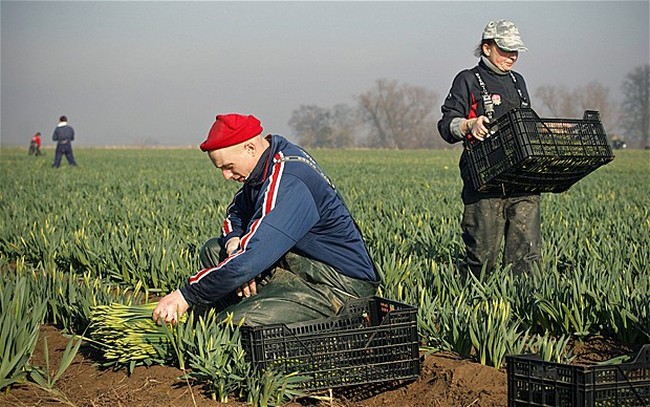
Us and “them?” — A racism against the familiar:
pic: Economics Gazette
By Isaac Mawhinney
The Oxford dictionary defines racism as; “Prejudice, discrimination, or antagonism directed against someone of a different race based on the belief that one’s own race is superior”. For centuries examples of this definition have been present throughout British society. Whether it was hostility directed at post-war migrants arriving from the Caribbean and South Asia during the 1960s’ Windrush, or Islamophobic sentiment towards refugees from war torn parts of Africa and the Middle East in contemporary terms. The history of Migration to Britain has proven that there is a trend of opposition to new arrivals in this country. But what happens when these new arrivals are not so clearly “the other”? What about the arrival of immigrants from nations that identify as white, are these groups free to live unaffected by forms of racism? What does this mean for our definition of racism previously outlined?
With our understanding of racism being that of hostility towards those of a different race along with the common belief that racist perpetrators are most likely of a white ethnic group, it becomes hard to grasp the concept of racism against those who also identify as white. But with 14.1% of white individuals falling victim to racially motivated hate crime in England and Wales during 2016/2017, (Home Office, 2018) it becomes prevalent that many white groups, too, must tackle forms of racist prejudices and discrimination.
In historical terms, this can be understood through the centuries of Irish immigration to Britain. Many of the Irish individuals making the short journey to their neighbouring country have been welcomed with disdain and disapproval on arrival. The Independent reported on 20th March 1996 that racism directed towards the Irish has been present in England for more than eight centuries. A parliamentary inquiry that took place in 1836 in response to the current arrival of Irish immigrants demonstrated that a common belief regarding Irish immigration was that it was an example “of a less civilised population spreading itself as a substratum beneath a more civilised community” (The Independent). Over the decades, this sentiment did not change with reports stating that it was a common occurrence in Britain to see landlords explicitly stating that Irish tenants were not welcome to rent (Rights Info, 2018). In contemporary terms, although less blatant than in previous years, there still appears a prevalent racist sentiment directed towards Irish individuals in the UK. With BBC 3’s screening of RTE’s documentary “Irish Rappers” a plethora of anti-Irish prejudice became apparent on twitter with discriminatory comments directed at individuals involved in the documentary. These tweets ranged from dangerous IRA based stereotypes to offensive remarks accusing Ireland as a nation having “chromosome damage” as a result of the potato famine (The Irish Times, 2012).
Clearly it has been noted through this history of anti-Irish sentiment that although a race may be shared between individuals, racism can still occur. Hickman and Walter (1995) argue it is all too simplistic to argue that a shared race results in a “homogeneous way of life” and therefore there is a “myth of homogeneity”. They argue the prevalence of Irish individuals belonging to a working class majority made it harder for individuals to assimilate and belong to a homogeneous white race, thus resulting in prejudices and discrimination against them and and legitimising these. This sentiment can also be seen today with the arrival of many white migrants coming from EU countries. These individuals share a race with the majority race demographic of the UK, yet this does not prevent them from suffering racist resentment comparable to that faced by white Irish immigrants in previous centuries. Brexit itself welcomed an anti-immigrant rhetoric with a 41% increase in racially aggravated offensives occurring during the month of the referendum in comparison to that month of the previous year (Rzepnikowska, 2018). This suggests that clearly racism is a problem becoming ever more apparent in British society
It is evident that an anti-white immigrant sentiment has not disappeared in Britain, and individuals arriving from white nations still fall victim to abhorrent prejudice and discrimination. Therefore, to further accommodate arriving individuals, a new understanding of racism must be established that includes and supports the experiences of individuals who face racism from a race that they also identify as. This itself will further legitimise the experiences of new EU migrants to the UK and therefore help combat the new racisms Brexit has invoked which, although different, appear to have a familiar face.

0 Comments